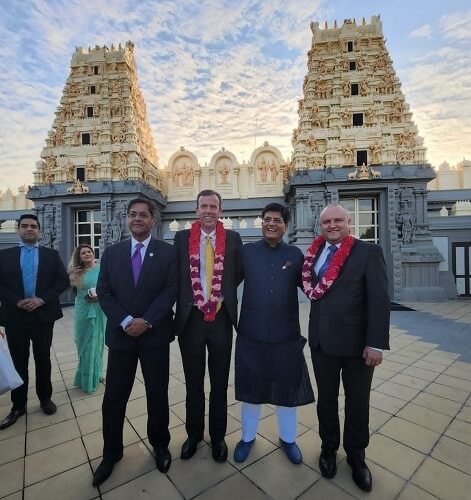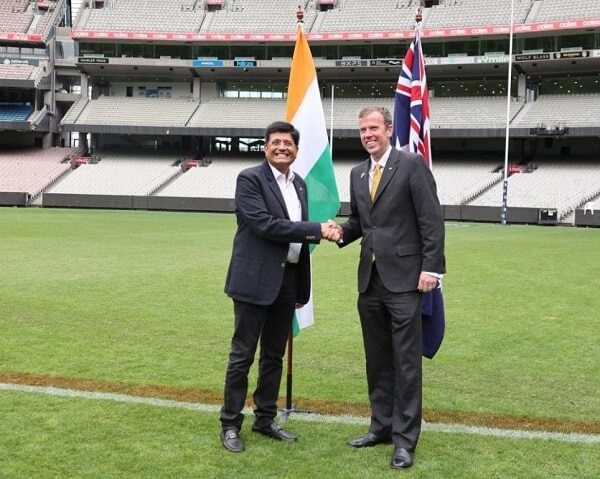On the Saturday morning of 2 April — carefully avoiding April Fool’s Day — the Australian government announced the signing of “an historic trade agreement with India, the Australia-India Economic Cooperation and Trade Agreement” (AI ECTA). In reality there is no such agreement: the official text spells out the title as the “India-Australia Economic Cooperation and Trade Agreement” (IndAus ECTA). Changing the name of the agreement towards a certain agenda, that’s politics for you.
The much-ballyhooed free trade agreement (let’s just agree to call it an FTA) is only an interim deal, the first fruits of a negotiation process that has dragged on for more than ten years, and may very well continue ten years more. Negotiations were “fast-tracked” in 2011 when then Prime Minister Julia Gillard told India’s Prime Minister Manmohan Singh that she was willing in principle to open uranium exports to India. That’s how long it’s taken just to get to this point.
And this point is… it’s a modest improvement over existing rules.
In his announcement, Prime Minister Scott Morrison said the FTA was “great news for lobster fishers in Tasmania, wine producers in South Australia, macadamia farmers in Queensland, critical minerals miners in Western Australia, lamb farmers from New South Wales, wool producers from Victoria and metallic ore producers from the Northern Territory.” It’s funny that he didn’t mention coal.
After all, coal accounts for more than 80 per cent of Australia’s exports to India. Next on the list are aluminum and gold, at 2.5 per cent each. Those Queensland macadamia farmers will surely be happy to access the Indian market, but in value terms, the FTA is a straight coal deal.
And he barely mentioned education. This after India’s overseas university students contribute more to the Australian economy (with tuition booked as “services exports”) than all non-coal exports combined. But there are no votes in recruiting more Indian students, and there may be negative votes in coal.
READ ALSO: Coalition or Labor: Who would be better for India?

So, with an election looming, the Australian side played up the nuts. And speaking of the wine – Morrison’s Liberal Party just lost the South Australian state parliamentary elections in a landslide, and is keen to avoid a repeat performance when the country goes to the polls in national elections expected in May.
That’s why the announcement was made on a Saturday morning. The agreement was the lead story on the front page of The Weekend Australian (“India Deal Eases China Pain”), the country’s largest newspaper by circulation. That’s political coverage money just can’t buy, and it sits on the newsstands for two days instead of just one.
Everyone is celebrating the IndAus ECTA, or the AI ECTA, or whatever you want to call the latest FTA, and they should. But any real deepening of India-Australia economic ties has to be based on profit, not politics.
For India, that means further business visa liberalisation beyond the modest reforms included in the FTA. For Australia, that means increasing investment into India’s burgeoning infrastructure sector.
Neither of those require an FTA. They require only political will, and the last timeframe to be looking for political will is just ahead of a national election.



